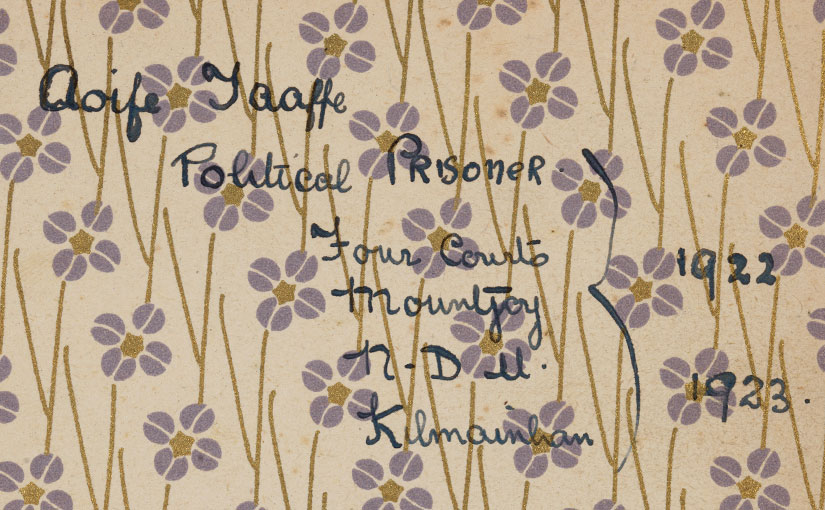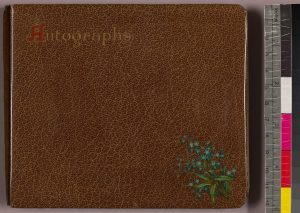by Aedín Ní Bhróithe Clements, Irish Studies Librarian (retired)
Autograph books, nicely-bound books full of blank pages, have been popular for a long time — from schoolchildren’s record of classroom friendships to collections of famous people’s autographs. The Hesburgh Library recently added to its collection a small but powerful document of women’s involvement in Ireland’s politics one hundred years ago.
Our new acquisition is the prison autograph book of Aoife Taaffe (MSE/IR 1101). The autograph book, signed by her fellow prisoners in 1923, documents the women, and also their dates and places of imprisonment during the Civil War of 1922-23.
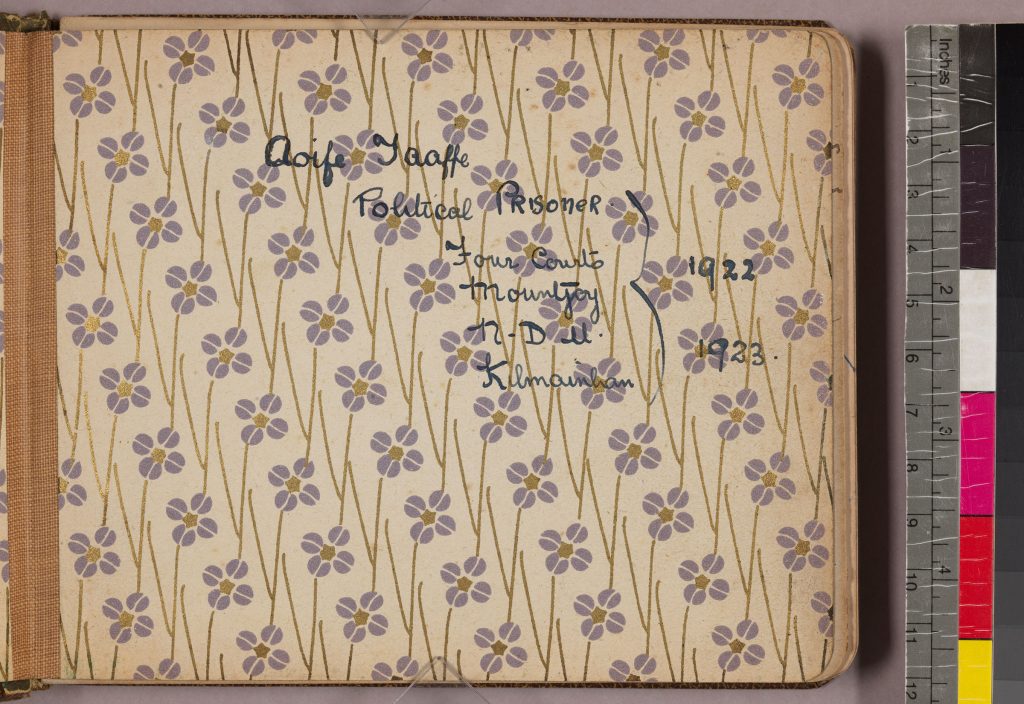
Information given on this page tells us that Taaffe was a prisoner in the Four Courts, in Mountjoy Jail, in the North Dublin Union, and in Kilmainham Gaol. The book is filled with the signatures of other women who were imprisoned during the Civil War of 1922-23, and their signatures are usually accompanied by information on imprisonment places and dates.
Like many women activists of her time, Aoife Taaffe is not well-known today. Information gleaned from various sources tells us that she was very involved in theatre both as an actor and a director, and she was also involved in many commemorative events for the 1916 Rising and the War of Independence during the 1920s and 30s. While in Kilmainham Gaol, she marked the seventh anniversary of the 1916 Rising by producing P. H. Pearse’s The Singer, with a cast of women prisoners.
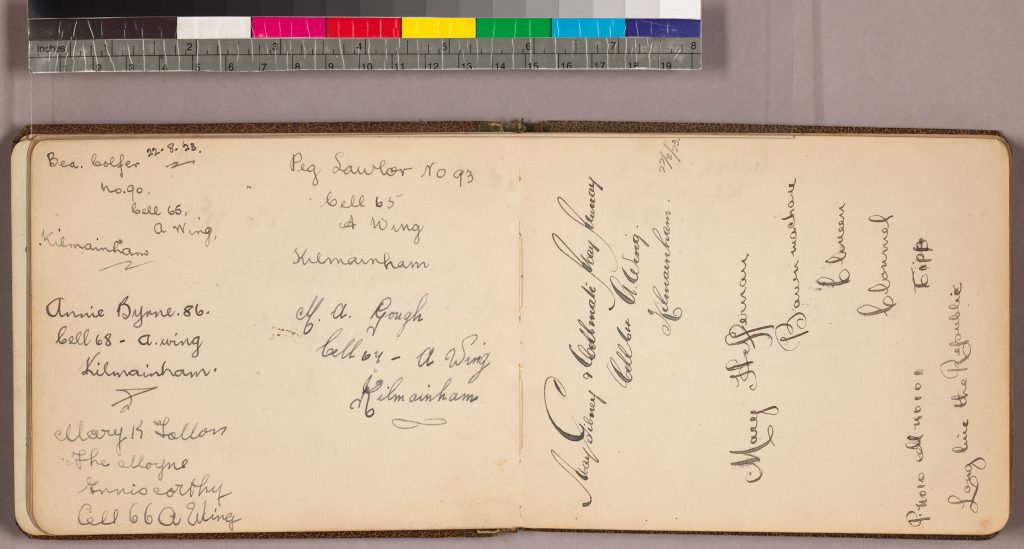
Autographs in the book include those of Margaret Buckley, Kid Bulfin, Eithne Coyle, May Gibney and Margaret Skinnider. In all, the book features the names and signatures of dozens of women prisoners.
The history of women’s involvement in the Irish War of Independence and Civil War is still relatively unknown. Sinéad McCoole’s No Ordinary Women: Irish Female Activists in the Revolutionary Years 1900-1923 (2003) is an important history, and a number of articles and podcasts on the website of Century Ireland provide interesting perspectives on women’s history of the period. A major primary source is the Military Archives, particularly the accounts of service provided by applicants for a pension.
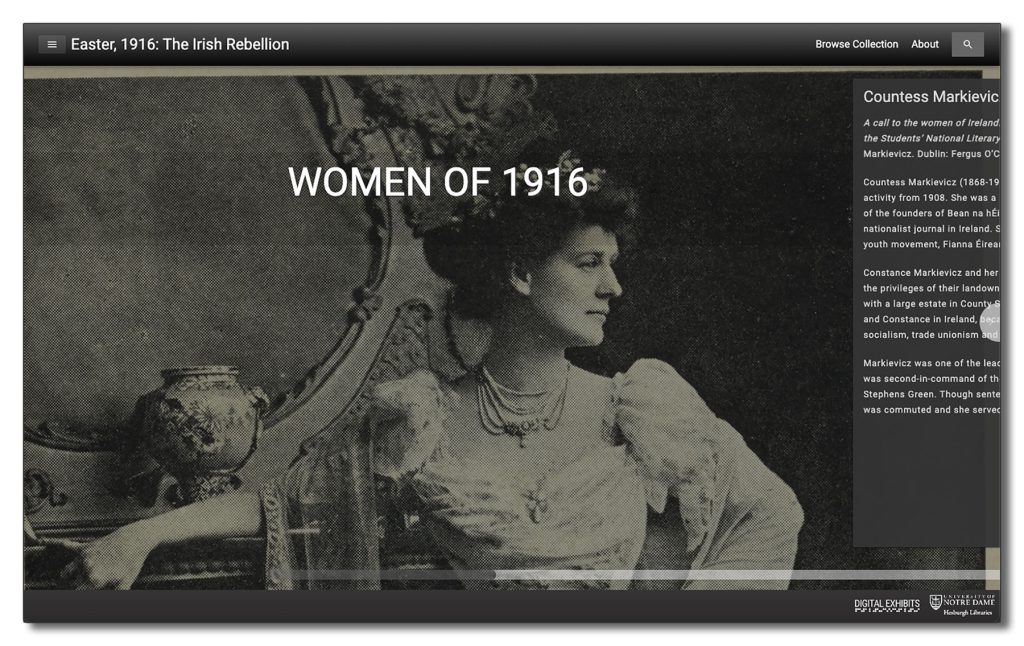
Seven years ago, we mounted a centenary exhibition, Easter 1916: The Irish Rebellion, which featured books and documents on a small number of women. This autograph book encourages us to look more widely for sources of Irish women’s history, which is slowly being pulled from the shadows.
